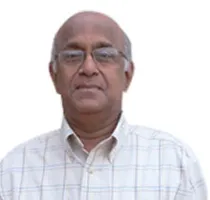"The Fukushima triple tragedy of March 2011 dealt a rude shock to the long-term goals of Japan's national energy policy. Japanese governments since then have wrestled very hard to address the question of providing a viable national energy policy, taking into account the strong scepticism about the future of the nuclear energy which accounted for about 30% of the total energy at the time of the tragedy. The Democratic Party of Japan (DPJ), which was in power during 2011-12, showed its ineptness to handle the crisis and ultimately decided to opt for the total elimination of nuclear power from its national energy strategy. Its preference for a zero nuclear option was also reflective of the mood of the people who seriously questioned the wisdom of continuing to depend on the nuclear power as a major energy source. The DPJ government decided to phase out nuclear energy by the end of the 2030s.
When Prime Minister Shinzo Abe took over office in December 2012, one of the questions he was called upon to address was: what kind of energy policy Japan should pursue and what should be the role of nuclear energy in the overall national energy strategy? From the beginning, the Abe administration showed its inclination to use nuclear energy as an important element in its energy policy. But it had to move rather cautiously as it could not ignore the strong public antipathy to the nuclear power. Further, the administration was not sure of the support it would receive from its own principal coalition partner, the New Komeito Party. There were also many within the LDP itself who were still not convinced of the necessity of the nuclear energy.
On 11 April 2014, the Abe government released its national energy policy -- nearly 15 months after assuming office. One compelling reason for adopting the new policy was the recognition of the government that in the absence of nuclear energy, which accounted for 30% of the total electricity until very recently, Japan had to pay heavily for importing oil and gas from abroad. It is calculated that the use of thermal power, which involved massive increases in the imports of oil and gas, cost the economy Y 3.6 trillion a year. This mammoth increase in the imports bill had to be borne by the Japanese taxpayers and the Japanese households are now paying 30-40% more for the consumption of power.
Purely from the economic viewpoint, there is a case for a shift away from the earlier zero nuclear option. But any government in charge of the national energy policy at this juncture has also to carefully gauge the people's mood and see that their concerns regarding safety are fully addressed if the government were to embark on reactivating the nuclear reactors. The Basic Energy Policy essentially seeks to steer a course showing its sensitivity to the public concerns as well as to the rising costs of conventional energy produced by imported oil and gas. But it has defined the nuclear energy as a "key base load electricity source" and announced that the operations of the nuclear reactors will be resumed after they have been cleared by the newly created Nuclear Regulation Agency with its tough tests.
The government, however, has also given an assurance that it will enforce tough regulatory standards and strive to reduce the country's dependence on the nuclear energy as much as possible. While the policy has not fixed any ratios for the different energy sources, it has not closed its options for building new reactors. With almost all nuclear reactors lying non-functional, the influential nuclear power industry in Japan is worried about the time the Nuclear Regulatory Agency (NRA) will take to complete its screenings of the reactors. There is also concern that if the NRA applies its forty years operation rule, a large number of reactors would need to be replaced by new reactors very soon in the coming years and if new reactors are not built in time, it will have an adverse impact on the supply of energy.
Apart from the future of nuclear energy, the ruling coalition government gave considerable attention to the share of the renewable energy in the future energy scenario of the country. It is reported that the New Komeito Party strongly suggested to the LDP that the new basic energy policy should assign 30 % share to the renewable energy. The LDP opposed it on the ground that when the government was not inclined to state the energy ratios of various sources, it would be odd to mention it only in respect of the renewable energy source. However, it conceded to its political partner by fixing the ratio for the renewable at 20%.
Finally, the basic plan has stressed the need for continuing plans to reprocess spent uranium fuel and reuse the extracted plutonium. Finally, one of the serious questions that remains unresolved and would pose a major challenge in the coming years is how to dispose of the highly radio-active nuclear waste. In the meantime, the Abe administration is keenly interested in exporting Japan's civilian nuclear technologies to foreign countries. The Diet has just ratified Japan's nuclear agreements with Turkey and the United Arab Emirates which would provide nuclear equipment and technology to these countries on the condition that they would use those materials only for peaceful purposes.
(Prof K.V. Kesavan is a Distinguished Fellow at Observer Research Foundation, Delhi)
"
The views expressed above belong to the author(s). ORF research and analyses now available on Telegram! Click here to access our curated content — blogs, longforms and interviews.

